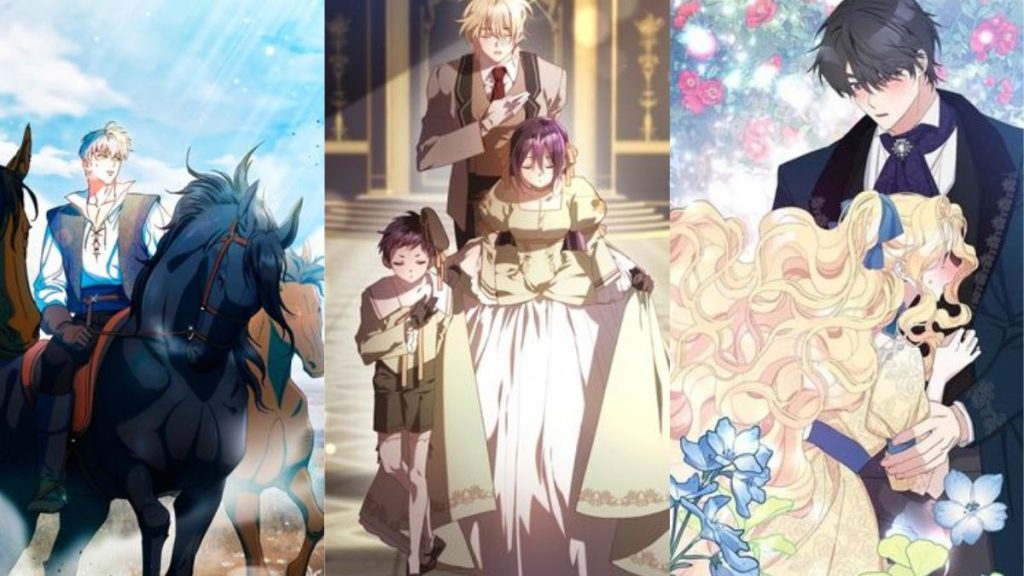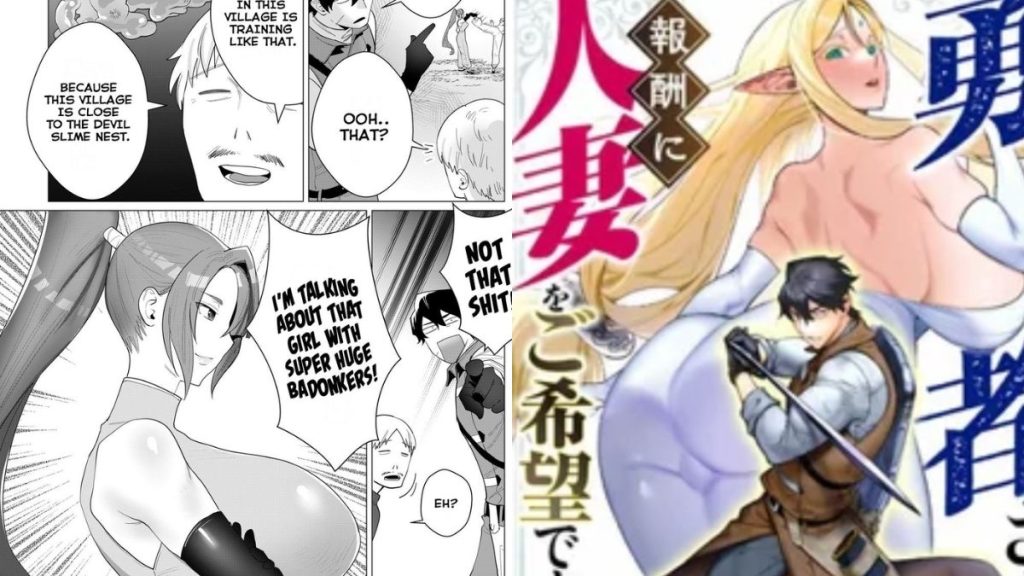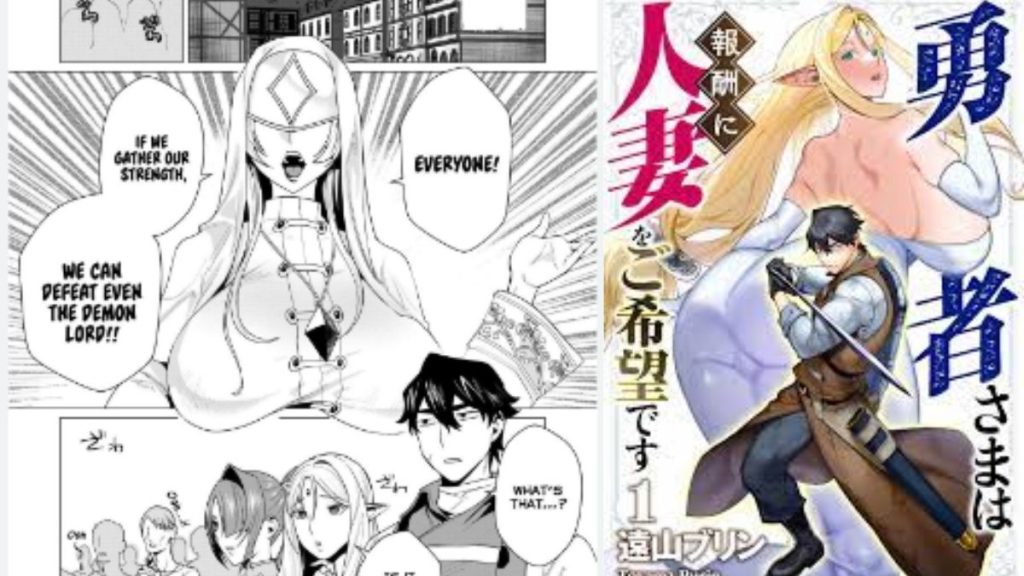“The Hero Wants a Milf as a Reward” is a manga series that has gained popularity in recent years. The premise of the series revolves around the hero, Chloe, who demands a reward in the form of a married woman after saving people. The manga is categorized under the genres of action, adventure, drama, fantasy, harem, romance, and seinen.
The unique aspect of the series is the protagonist’s preference for married women. Chloe only accepts married women as a reward, and he always goes for the most beautiful one in town. This preference has made him a peculiar hero, and the series takes a comedic approach to his character. However, the series also delves into the consequences of Chloe’s actions on the married women and their families.
Overall, “The Hero Wants a Married Woman as a Reward” is a manga series that provides a unique twist on the traditional hero trope. The series explores the consequences of the protagonist’s actions while maintaining a comedic tone. The manga’s popularity is a testament to its ability to captivate readers with its unusual premise.
The Hero’s Journey
Hero’s Motivation
In “The Hero Wants a Milf as a Reward,” the hero, Chloe, is motivated by a unique desire for married women. He demands a bounty as a reward for saving people, but only accepts married women as his prize. He sets his sights on the prettiest Milf in town and demands her as his reward. His motivation is driven by his unusual taste for married women, which sets him apart from other heroes.
Hero’s Challenges
Chloe’s journey is not without its challenges. His unusual demands for married women as a reward often put him at odds with the townspeople he is trying to save. He faces resistance and criticism from those who do not understand his motivations. Additionally, his attraction to married women often leads to conflict with their husbands, who are not willing to give up their wives to a hero.
Despite these challenges, Chloe remains steadfast in his mission to save people and claim his reward. He uses his unique abilities and skills to overcome obstacles and continue on his journey. As he faces new challenges, he adapts and learns from his experiences, becoming a stronger and more capable hero.
Overall, Chloe’s journey is one of a hero with a unique motivation and a determination to succeed despite the challenges he faces.
The Concept of Reward
In storytelling, the concept of reward is a crucial element that motivates characters to pursue their goals. It is a way to show the audience what the protagonist values and what they are willing to do to achieve it. The Hero Wants a Milf as a Reward is no exception, as the hero, Chloe, demands a bounty for his heroic deeds.
Reward in Hero’s Journey
The Hero’s Journey is a common narrative archetype that many stories follow, including The Hero Wants a Married Woman as a Reward. In this archetype, the hero is called to adventure and faces challenges that test their skills and character. As the hero progresses, they receive rewards that motivate them to continue their journey.
In Chloe’s case, he demands a reward for his heroic deeds, which is usually a married woman. This unconventional reward reflects Chloe’s character and values, as he is a strange hero who only likes married women. It also adds a unique twist to the traditional hero’s journey, as the reward is not something that the hero usually receives.
Unconventional Rewards
Unconventional rewards are rewards that deviate from the norm and add a unique twist to the story. In The Hero Wants a Married Woman as a Reward, Chloe’s demand for married women as a reward is an unconventional reward that adds a unique element to the story.
Unconventional rewards can add depth to a character and create a more interesting story. They can also challenge the audience’s expectations and force them to question their assumptions. In The Hero Wants a Married Woman as a Reward, Chloe’s unconventional reward challenges the audience’s perception of what a hero should value and desire.
Overall, the concept of reward is an essential element in storytelling that motivates characters to pursue their goals. In The Hero Wants a Milf as a Reward, Chloe’s demand for married women as a reward adds a unique twist to the traditional hero’s journey and challenges the audience’s expectations.

Understanding the MILF Trope
Origin and Definition
The term “MILF” is an acronym for “Mother I’d Like to F***.” It originated in the 1999 film “American Pie,” in which one of the characters, Finch, uses the term to describe his friend’s mother, who he finds attractive.
Since then, the term has become a popular trope in popular culture, particularly in film, television, and pornography. It refers to an older woman who is attractive and sexually desirable, often with children. The term has been criticized for its objectification of women and for perpetuating ageist and sexist stereotypes.
MILF in Popular Culture
The MILF trope has become increasingly prevalent in popular culture, particularly in film and television. Some notable examples include:
- “The Graduate” (1967): In this classic film, Dustin Hoffman’s character has an affair with Mrs. Robinson, a family friend who is older and married.
- “American Pie” (1999): As mentioned earlier, this film popularized the term MILF and introduced it to a wider audience.
- “Weeds” (2005-2012): This television series features a main character, Nancy Botwin, who is a single mother and drug dealer. She is often portrayed as sexually desirable and has several romantic relationships throughout the series.
- “Bad Moms” (2016): This comedy film features a group of mothers who rebel against societal expectations and have fun while doing it. The film portrays the mothers as strong, independent women who are still desirable and sexually active.
While the MILF trope has been criticized for its objectification of women, some argue that it can also be empowering for older women who are often overlooked in mainstream media. Regardless of one’s opinion on the trope, it is clear that it has become a prevalent part of popular culture.
The Hero’s Desire for a MILF as a Reward
Psychological Perspective
The hero of “The Hero Wants a Married Woman as a Reward” has a unique desire for a married woman as a reward. From a psychological perspective, this can be seen as a form of fetishism. A fetish is an object or body part that is sexually arousing to an individual. In this case, the hero is aroused by the idea of a married woman. This can be seen as a form of taboo or forbidden desire, which can make it even more exciting for some individuals.
Furthermore, the hero’s desire for a married woman can also be seen as a form of dominance. By demanding a married woman as a reward, the hero is asserting his power and control over the situation. This can be a way for individuals to feel empowered and in control, which can be sexually arousing.
Narrative Implications
The hero wants a milf as a reward has important narrative implications. It sets up a unique dynamic between the hero and the other characters in the story. The hero is not a traditional hero who saves people out of the goodness of his heart. Instead, he demands a reward for his services, and that reward is a married woman.
This creates tension between the hero and the other characters in the story, particularly the married women who are the object of his desire. It also sets up a potential conflict between the hero and the other male characters in the story who may be protective of the women.
Overall, the hero’s desire for a married woman as a reward adds an interesting and unique element to the story. It creates tension and conflict, and adds depth to the hero’s character.
Impact on the Story
Character Development
“The Hero Wants a Married Woman as a Reward” is a unique erotic fantasy story that follows the hero, Chloe, who demands a bounty when saving people. What makes him different is the prize he demands. He only enjoys married ladies, therefore he requests the most attractive MILF in the area .This peculiar trait of Chloe’s character is the driving force behind the plot of the story.
Throughout the story, Chloe’s character develops as he saves more people and demands more rewards. His obsession with married women becomes more prominent as the story progresses. Chloe’s character is portrayed as confident, knowledgeable, and neutral, which makes him a unique protagonist.
Plot Progression
The plot of “The Hero Wants a Married Woman as a Reward” revolves around Chloe’s quest to save people and get the prettiest MILF as a reward. The story progresses as Chloe saves more people and demands more rewards. The plot takes a turn when Chloe meets a woman named Emily, who is not married, but he still finds her attractive.
The introduction of Emily’s character brings a new dynamic to the story. Chloe’s obsession with married women is challenged, and his character is forced to develop. The plot thickens as Chloe struggles with his feelings for Emily and his obsession with married women.
In conclusion, the character development and plot progression in “The Hero Wants a Married Woman as a Reward” are intricately linked. Chloe’s obsession with married women is the driving force behind the plot, and his character development is a result of his actions throughout the story.

Conclusion
In conclusion, “The Hero Wants a Married Woman as a Reward” is a unique and erotic fantasy story created by Burin Toyama. It follows the story of a strange hero named Chloe who demands a bounty when saving people, but what makes him different is the prize he demands. He only likes married women, so he demands the prettiest MILF in town as his reward.
The story is filled with action, adventure, drama, fantasy, harem, romance, and erotica. The art is well-drawn and the characters are well-developed, making it an enjoyable read for those who enjoy the genre.
While the story may not be for everyone due to its explicit content, it is a well-written and interesting take on the fantasy genre. The unique twist of having the hero demand a married woman as his reward adds an extra layer of intrigue to the story.
Overall, “The Hero Wants a Milf as a Reward” is a must-read for fans of the fantasy and erotica genres. Its well-developed characters, interesting plot, and unique twist make it a standout among other works in the genre.
Frequently Asked Questions
What are common rewards for heroes in literature or media?
Heroes in literature or media often receive rewards for their heroic deeds. These rewards can vary depending on the story, but some common rewards include monetary compensation, recognition and praise, political power or status, and the love or affection of a romantic interest. In some cases, the hero’s reward may also be the satisfaction of knowing they have done the right thing.
What are some common tropes in hero narratives?
Hero narratives often include common tropes such as the hero’s call to action, their journey or quest, their struggle against adversity, and their eventual triumph over evil or injustice. Other common tropes include the hero’s mentor or guide, their loyal companions, and their ultimate sacrifice for the greater good.
What are some common themes in hero narratives?
Common themes in hero narratives include heroism, sacrifice, bravery, honor, justice, and redemption. These themes often reflect the values and ideals of the society in which the story is told.
What are some common motivations for heroes?
Heroes in literature or media are often motivated by a desire to do what is right, to protect others, or to seek revenge for a perceived wrong. Other common motivations include a desire for power, fame, or fortune, or a need to prove oneself.
What are some common character archetypes in hero narratives?
Common character archetypes in hero narratives include the hero, the mentor, the sidekick, the love interest, and the villain. These archetypes often serve specific functions in the story and help to drive the plot forward.
What are some common plot devices in hero narratives?
Common plot devices in hero narratives include the hero’s journey, the hero’s quest, the hero’s call to action, and the hero’s ultimate triumph over evil or injustice. Other common plot devices include plot twists, cliffhangers, and dramatic irony.







